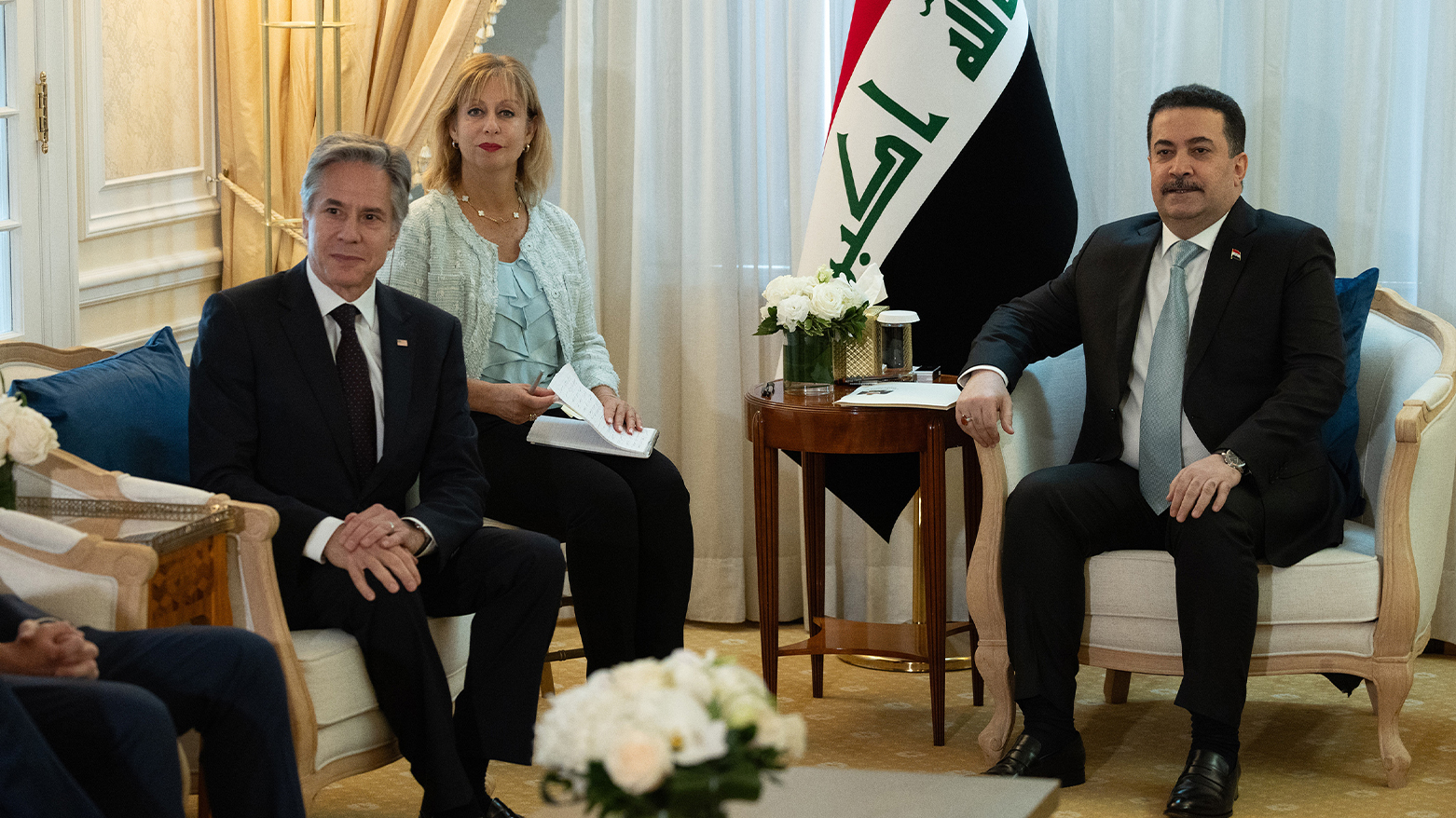Blinken ‘Emphasized Need to Reopen Iraq-Turkey Oil Pipeline’ in Meeting with Sudani
“The Secretary emphasized the need to reopen the Iraq-Türkiye oil pipeline to encourage continued foreign investment in the Iraqi economy,” as the Spokesperson explained.

WASHINGTON DC, United States (Kurdistan 24) – U.S. Secretary of State Antony Blinken met with Iraqi Prime Minister Mohammed Shi’a al-Sudani on Monday on the sidelines of the 79th session of the opening of the UN General Assembly (UNGA.)
“The Secretary emphasized the need to reopen the Iraq-Türkiye oil pipeline to encourage continued foreign investment in the Iraqi economy,” according to the read-out of the meeting provided by State Department Spokesperson Matthew Miller.
Reopening the pipeline would allow the Kurdistan Regional Government (KRG) to resume oil exports, which have been halted for over a year, because of a dubious ruling from the Paris-based International Chamber of Commerce’s International Court of Arbitration (ICC-ICA.)
Read More: U.S. Calls for Resuming Kurdish Oil Exports—after adverse ruling in nine-year-old arbitration case
Indeed, on Sunday, Col. Myles Caggins, a former Spokesperson for the anti-ISIS Coalition and now Spokesperson for APIKUR (Association of the Petroleum Industry of Kurdistan) told Kurdistan 24 just that.
As Caggins said, Blinken would meet Sudani and the issue of resuming exports through the Iraq-Turkey pipeline would be on the agenda.
In speaking with Kurdistan 24, Caggins also stressed that there were no technical obstacles to restarting the export of Kurdish oil. The oil companies are already pumping oil for local consumption, while the Turkish government says that the pipeline is operable.
The basic problem, Caggins said, was politics, and the Iraqi Prime Minister has the authority to resolve those political issues that continue to block the use of the pipeline.
Read More: Blinken to Meet Sudani at UNGA; Talks to Include Restarting Exports through Iraq-Turkey Pipeline
Other Issues Raised in the Blinken-Sudani Meeting
Five other issues came up in the meeting, as the U.S. read-out details.
Blinken and Sudani “emphasized the importance of the U.S.-Iraq strategic partnership, including a commitment to expand cooperation on economic development and continue to build ties between our two peoples.”
They also “reaffirmed” their “shared vision to build an enduring security partnership that advances regional stability.” It includes “continuing discussions on transitioning the military mission of the [Defeat-ISIS} coalition in Iraq” to ensure the terrorist group’s enduring defeat.
Another problem is that Iraq lacks the infrastructure to capture the natural gas produced in the course of pumping its oil. Rather, Iraq “flares,” or burns. the gas.
Consequently, Iraq has a gas shortage, and it has to import gas from Iran. In addition, the burning of so much gas contributes to global warming.
EPIC (Enabling Peace in Iraq Center) recently produced a major study of this destructive practice. The U.S. has been pushing Iraq to remedy this problem and, at the same time, end its energy dependence on Iran.
Thus, Blinken “commended Iraq’s commitment to achieve energy independence by 2030,” according to the U.S. readout.
He also “affirmed U.S.support for the Prime Minister’s agenda to modernize the Iraqi economy, including by combatting corruption and reforming the financial sector,” while he underscored the U.S. “commitment to ongoing efforts to support a stable, secure, and sovereign Iraq that benefits the people of Iraq and the broader region.”
Finally, both countries are deeply disturbed by the expanding war between Israel and Hamas, which now includes Hizbollah.
Blinken and Sudani “discussed urgent efforts to avoid further escalation of the conflict in the region,” the U.S. read-out explained.